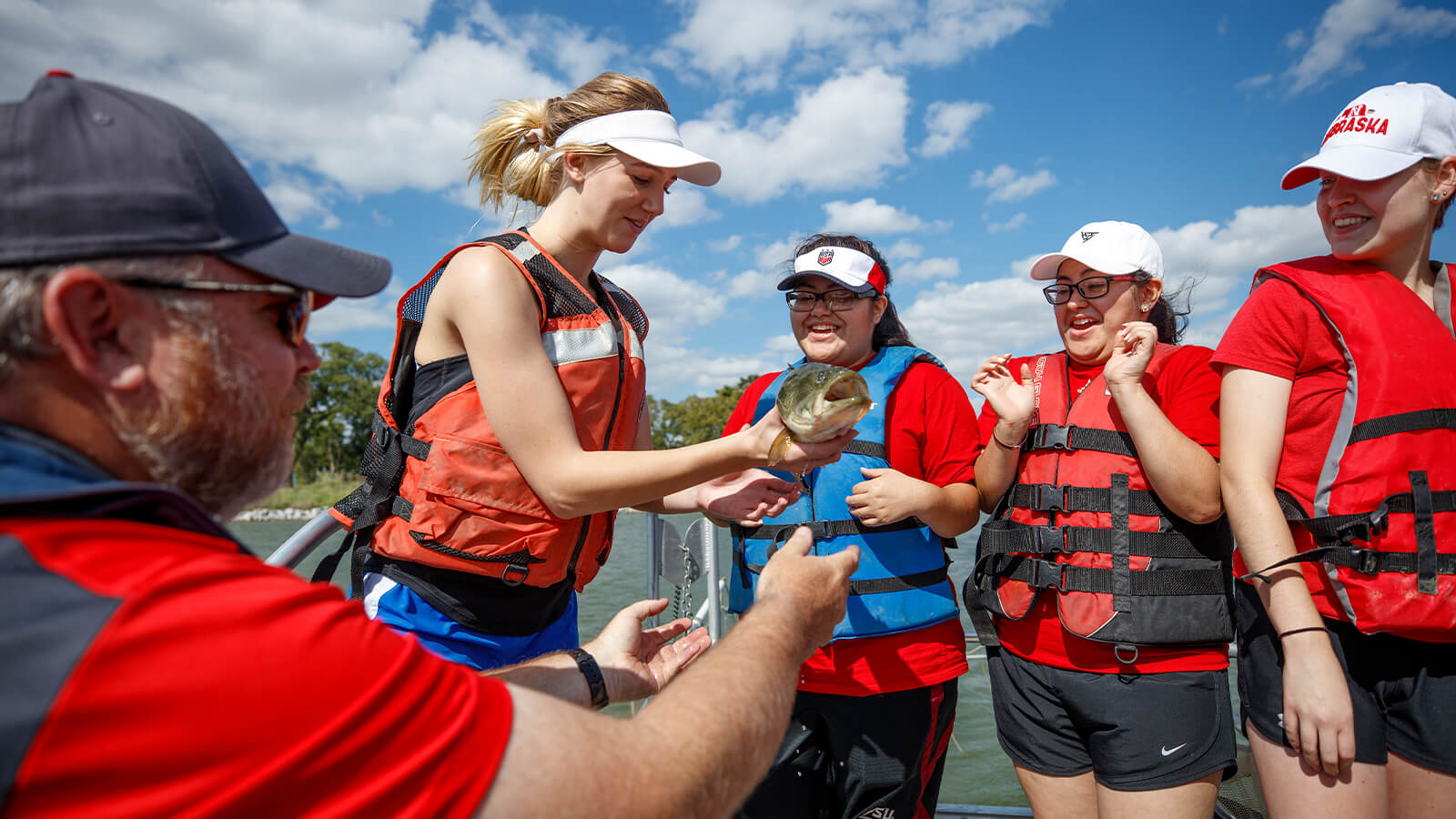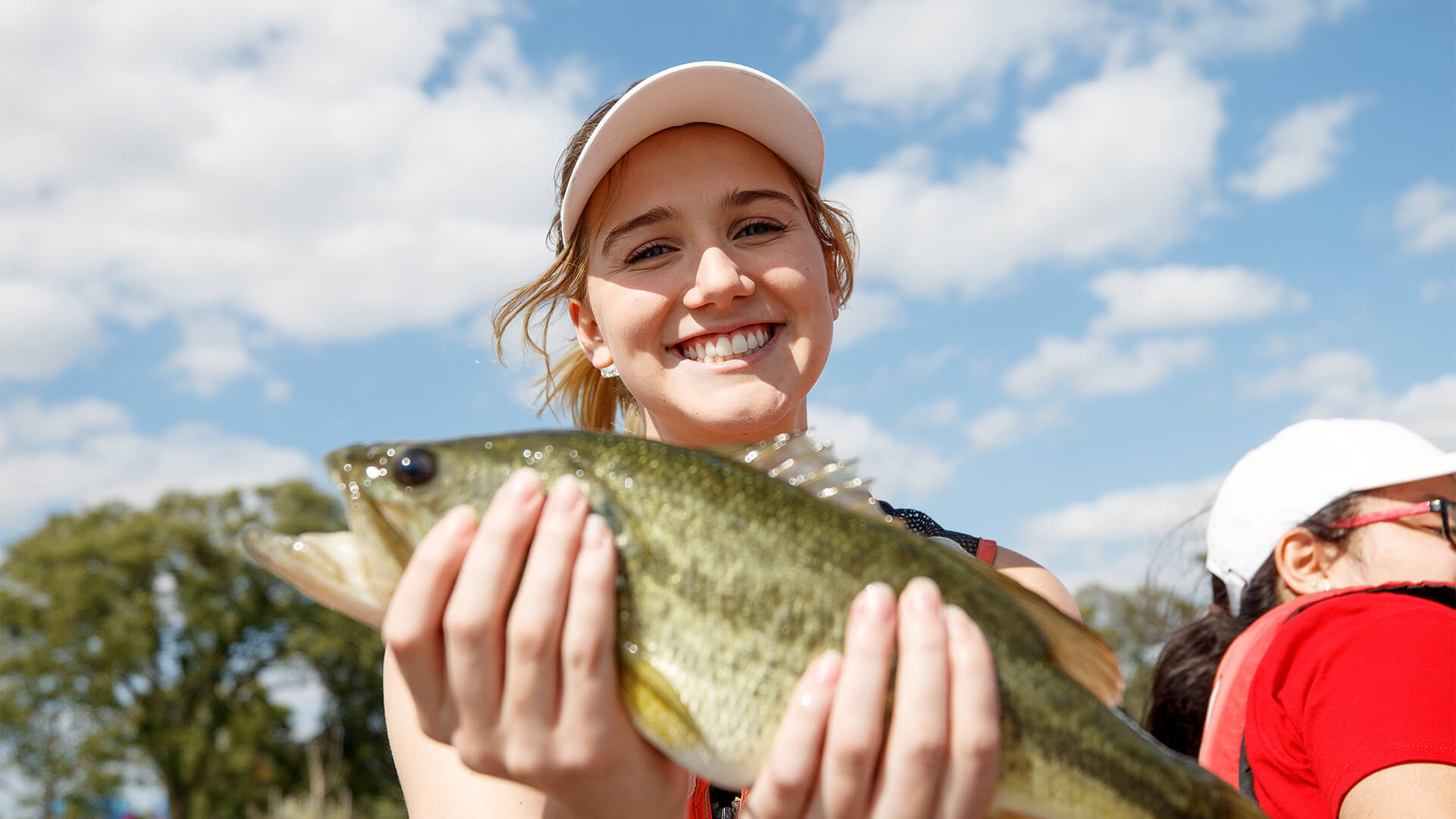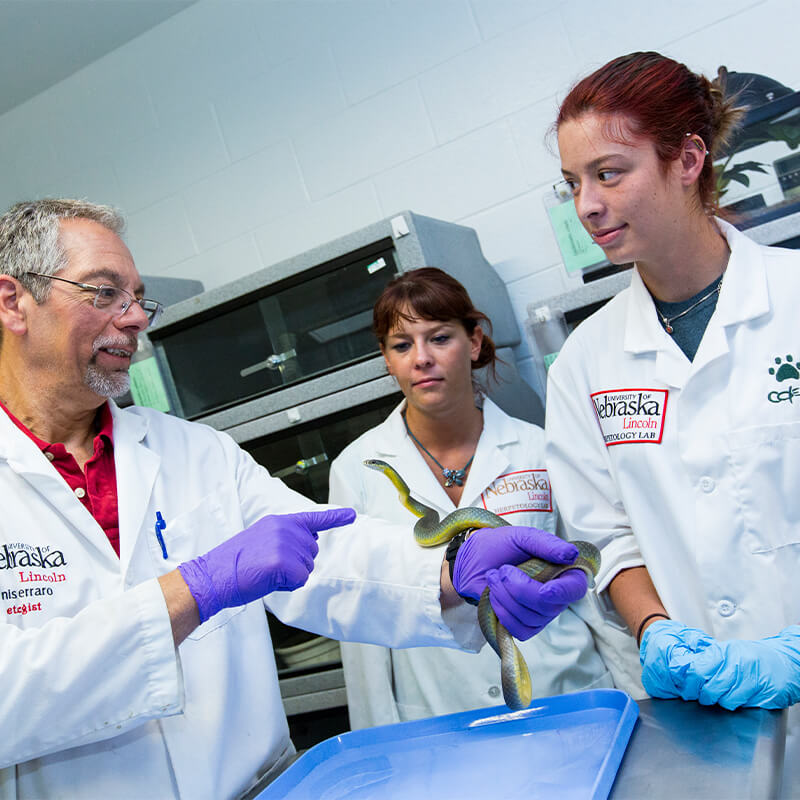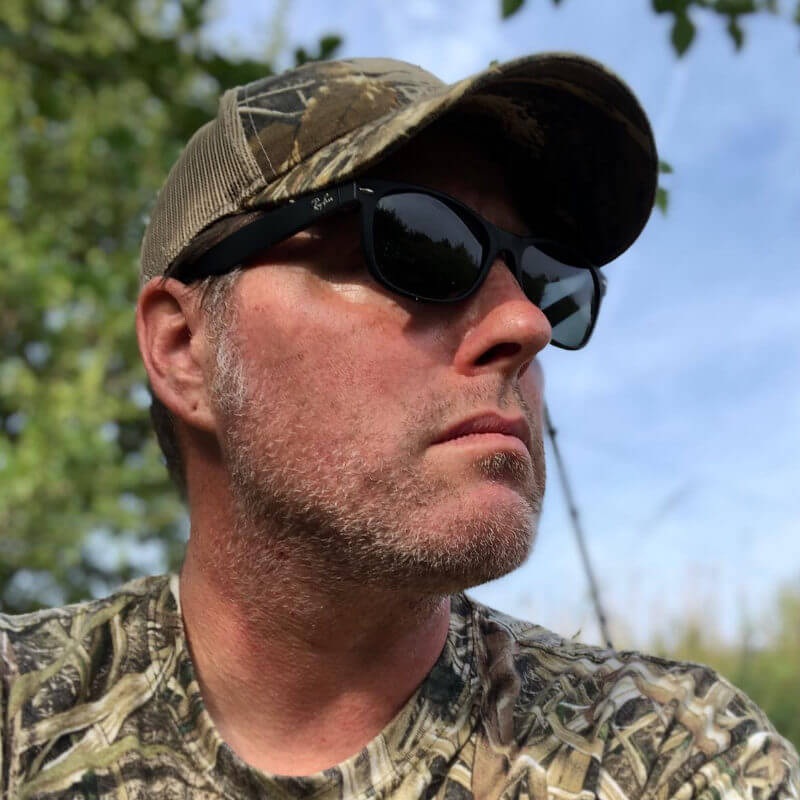Fisheries & Wildlife

The Nebraska Difference
1-to-1 Personalized Advising
Hands-On Experiences Outside the Classroom
Undergraduate Research Opportunities

Program Features
Build Skills
You'll get resume-building experience working with animals, managing habitats and learning about conservation, all while building a strong background in wildlife biology and growing your strategic thinking so you can excel in a future career.
Choose an Emphasis Area
You will have the opportunity to choose at least one emphasis area within Fisheries and Wildlife. These emphasis areas help you specialize your coursework based on your career goals. Areas range from law enforcement or entrepreneurship to habitat management.
Create Your Future
Our graduates go on to become leaders in their field. With a degree in fisheries and wildlife, you could pursue an exciting career as a fisheries researcher, wildlife biologist, park ranger, environmental educator, zookeeper and so much more! Check our job board and weekly job update emails for new opportunities.

Notable Courses
Natural Resources Orientation (NRES 101)
Introduction to natural resource disciplines. Fisheries, wildlife, forestry, grasslands, climate and water science.
Oh My Cod: Exploring Aquatic Ecology Careers (NRES 163)
Introduction to fisheries and aquatic ecology. Become familiar with current research, learn about careers in aquatic ecology and get initial field sampling experience.
Wildlife Field Techniques (NRES 233)
Field and laboratory skills needed for wildlife management. Wildlife and vegetation surveys, mark-recapture of wildlife, radio-telemetry, aging and forensic methods and habitat assessment.
Wildlife Ecology and Management (NRES 311)
Applied ecology, conservation biology, population biology and enhancement of vertebrate non-domestic animal population through management.
Human Dimensions of Fish and Wildlife Management (NRES 315)
Social, cultural and economic values, as well as attitude and behavior of individuals, groups and stakeholders in fisheries and wildlife management.
Zoo Keeping and Management (NRES 441)
Examine and build on the knowledge, skills and abilities needed to work in zoos, including animal keeping, guest services and curation.
Huskers Do Big Things
Internships
- Zookeeping and ambassador animal internships, Lincoln Children’s Zoo
- Intern, Montana Conservation Corps
- Wild turkey research technician, University of Nebraska–Lincoln
- Outdoor educator, Pioneers Park Nature Center
Careers
- Fisheries technician, University of Nebraska–Lincoln, Lincoln, Nebraska
- Conservation technician, Nebraska Game and Parks, Battle Creek, Nebraska
- Environmental technician, New Country Environment, Columbus, Nebraska
- Biological science technician, U.S. Fish and Wildlife, Leadville, Colorado
- Big cat keeper, In-Sync Exotics, Wylie, Texas
- Highway environmental biologist, Nebraska Department of Roads, Lincoln, Nebraska
Graduate Schools
- M.S. and Ph.D., Wildlife and Fisheries Sciences, South Dakota State University
- M.S. and Ph.D., Wildlife and Fisheries Sciences, Pennsylvania State University
- Ph.D. University Program in Ecology, Duke University
- M.S. and Ph.D., Natural Resource Sciences, University of Nebraska–Lincoln
Outside the Classroom
Study abroad for a month in South Africa to learn about the bushveld. Experience phenomenal wildlife and learn about the challenges South Africa faces during this period of rapid change.
Cedar Point Biological Station (CPBS) is a field research facility and experiential classroom in western Nebraska. Experiences draw on the variety of local habitats and diversity of flora and fauna.
The mission of Wildlife Club is to further knowledge about wildlife, provide development and leadership opportunities, cooperate with organizations concerned with wildlife, and acquaint students and faculty.

Featured Faculty
Chris Chizinski, Associate Professor
Chris Chizinski is an associate professor in the School of Natural Resources. His areas of interest and expertise include human dimensions of natural resources, wildlife, fisheries and social-ecological systems. He earned his B.S. in Ecology and Evolutionary Biology and Environmental Science from the University of Connecticut and his M.S. and Ph.D. in Fisheries Science from Texas Tech University.
Have Questions? We're Here to Help
If you have questions about the Fisheries & Wildlife major or navigating the application process, contact us.

- Contact Name
- Bridget Gross
- Contact Title
- Recruitment Specialist
- Phone
-
-